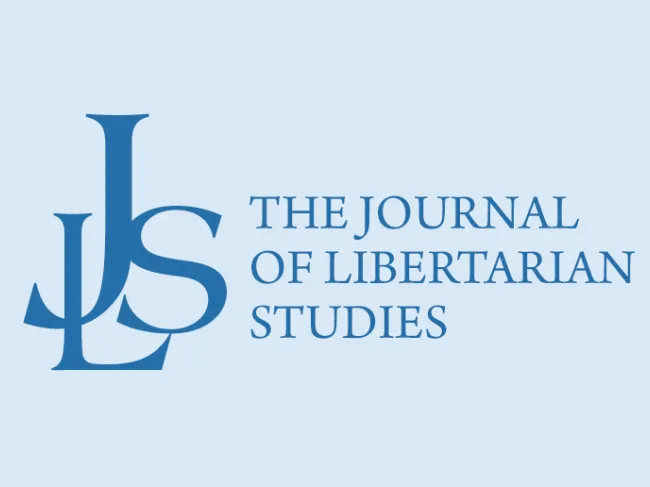When Murray Rothbard founded the Journal of Libertarian Studies in 1977, he wrote an editorial for the first issue. In it, he said, “The Journal of Libertarian Studies has been founded not simply to provide an outlet for scholarship and research that may be unpopular in a particular discipline. It is the belief that there is a new and growing interdisciplinary discipline — libertarianism — enriched by contributions in each of the particular and seemingly isolated fields that study human action which provides the motive for this Journal. Philosophy, political science, economics, history, law, sociology, geography, anthropology, education, and biology will be carried in this Journal.”
In the years after Rothbard wrote this, the JLS published many notable articles, but here we have space to mention only a few. Robert Nozick’s Anarchy, State, and Utopia, published in 1974, brought libertarianism to the attention of the philosophical world, but several contributors to the first issue of the JLS, including Roy Childs, Randy Barnett, and Rothbard himself, were dissatisfied. They defended anarcho-capitalism and argued that Nozick had failed to justify the “minimal state.”
In history, JLS contributors including the great historian Ralph Raico and the distinguished economist Joseph Salerno brought to renewed scholarly attention to the French Classical Liberal School of the early nineteenth century. Disciples of J.B. Say like Charles Comte and Charles Dunoyer developed an account of the state as the source of exploitation.
The JLS featured contributions from world-famous scholars. F.A. Hayek wrote “Toward a Free Market Monetary System,” which appeared in Volume III, number 1. The heterodox psychiatrist Thomas Szasz wrote for us, as did such renowned philosophers as Gilbert Harman, Henry Veatch, and Antony Flew.
It would be easy to go through a long list of important articles in the JLS by such noted scholars as Ronald Hamowy, Walter Block, Hans-Hermann Hoppe, Paul Cantor, and Paul Gottfried, but one more must suffice here: Rothbard’s “World War I as Fulfillment: Power and the Intellectuals,” which appeared in the Winter 1989 issue. In this article, Rothbard showed that American Progressives used the increased power of the government during wartime to enact their agenda.
After Rothbard’s death in 1995, Hans-Hermann Hoppe became editor; he was succeeded by Roderick Long. Until 2008, the JLS was a quarterly publication, but in 2008 one annual issue, in print and online, was edited by Thomas Woods. The JLS ceased publication in 2009. A new online journal, Libertarian Papers, under the able editorship of Stephan Kinsella and Matthew McCaffrey, in part acted as a substitute, but this journal was independent from the Mises Institute. When the Mises Institute decided to resume publication of the JLS, the editors of Libertarian Papers elected to cease publication, and future issues of the JLS will include articles that had been scheduled to appear there. (The JLS was published by the Center for Libertarian Studies from its inception in 1977. The Mises Institute took over publication in 2000.)
With the first issue of the revived JLS, we are off to good start, with articles that display the wide range of subjects, including economics, the history of political thought, legal theory, and philosophy, for which Murray Rothbard hoped. We should like to conclude with another remark from Rothbard’s initial editorial, which remains our policy today: “By its existence as a regularly appearing publishing outlet, we hope to stimulate significant expansion in the research and production of scholarly libertarian material. We hope to intensify the development of the emerging discipline of libertarianism. Finally, we expect that the existence of the Journal will serve to multiply the number of libertarian scholars and to intensify communication among and cross-fertilization of them. Whether or not the scholar is personally a libertarian will not be a criterion for acceptance of a manuscript; rather, the criterion will be whether an article will advance the discipline of libertarianism, regardless of the personal beliefs of the author.”


